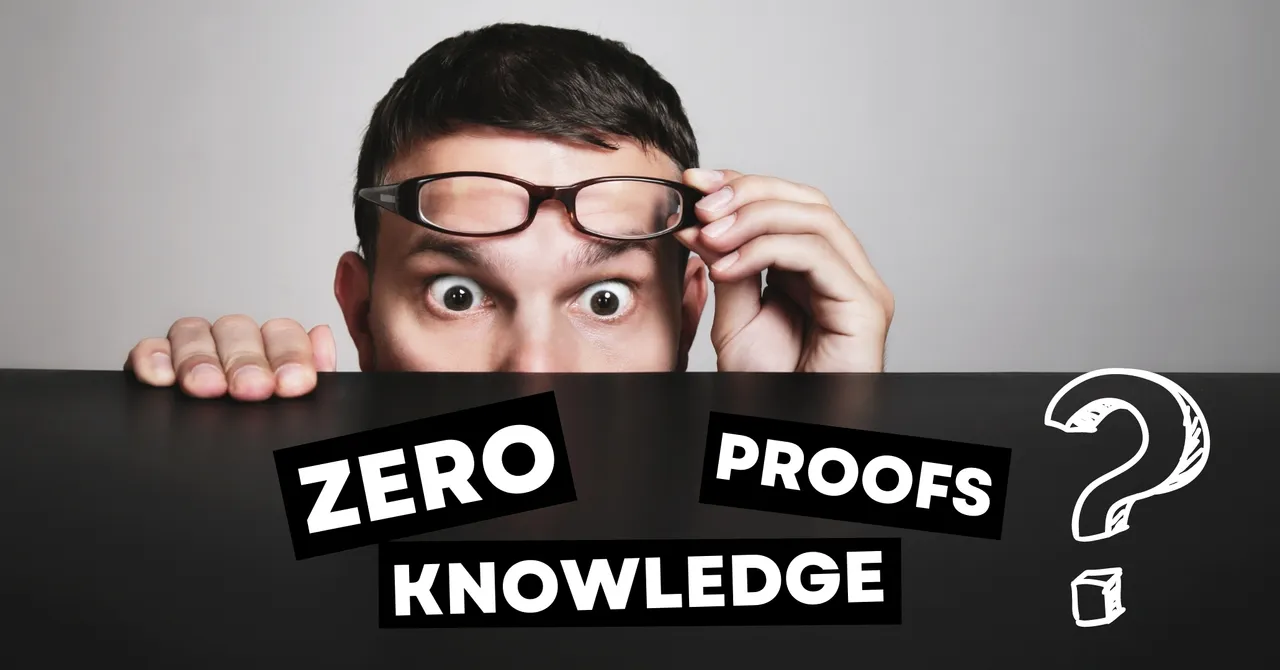
ZK (Zero-Knowledge) Proof or ZK Protocol is fairly a new technique of cryptography that was first introduced in 1985 by MIT researchers Shafi Goldwasser, Silvio Micali & Charles Rackoff. All of them are genius computer scientists and mathematicians doing excellent work within their fields. Micali has also founded the Algorand Blockchain Network. ZK proofs will change modern cryptography forever because it works on the principle of not trusting people without proof. We should follow this IRL too 😂 but normally trust our friends, family & the governments. That's why blockchains are so popular since they are trustless, you don't need to trust a third party. ZK Proof technology will only make them more powerful and help them scale infinitely because with them you don't even need to trust the 2nd party. ✌
In this blog, I will try to explain what ZK Proof is. Most importantly, I will discuss its potential applications in real life.
What Is Zero-Knowledge (ZK) Proof?
In simple terms, Zero-Knowledge Proof allows you to authenticate & communicate without revealing your personal data like name, password, email id, who's your mama and papa, how many kids you have or don't have, marital status, social security number, name of your doggo, bank account, etc. It is secure and private by default. There are two entities involved in any communication that happens on the internet. They are known as the prover and verifier. The idea behind ZK proofs is that a prover will only let the verifier know that a particular statement is true without revealing the actual statement or any other info that is not required. Second-party will have "zero-knowledge" of your identity but they will still be able to verify it is you.
ZK Proofs have the following three important properties as defined by the co-inventor Shafi Goldwasser:
- Completeness: If the prover is providing the right information, the verifier will get convinced with a high probability that is it correct.
- Soundness: The verifier will be convinced, if and only if the prover is providing the proof of the right information.
- Zero-Knowledgeness: The verifier must not reveal the actual information.
ZK Proof Applications
- Blockchains: Transactions on most blockchains like Bitcoin and Ethereum are transparent. ZK proofs can be used to add a layer of privacy on these networks. ZCash is a great example based on Zk-SNAKR method of cryptography.
- Identity Verification: Secure and private identity verification is not available anywhere right now. Polygon ID is an upcoming project on Polygon Network that will use ZK Proofs to create your identity on the blockchain.
- Passwordless Authentication: No password is required just proof that the user has entered the correct password. It has potential use cases in almost all Web2 and Web3 applications.
- Voting & Elections: ZKP will hide the identity of the voters and the people counting the votes should only have to know that a valid vote has been cast.
- Supply Chain Management: ZK Proofs make Product tracking & authentication easier without the risk of information leaks to happen.
- Finance: There are a ton of use cases in the Finance sector. You can operate and manage your financial credit profile privately and securely. Insurance and loan checks can be done efficiently with no dependency on third parties.
Any many more... Anywhere there is a need to authenticate some information without revealing the actual information, there's a scope to use ZK Proof technology. Even though it's complex to understand the technical details, but most of us don't need to go such deep. Understanding the value and its role in lifting up our digital lives is more than enough. What do you think guys? Comment below!



